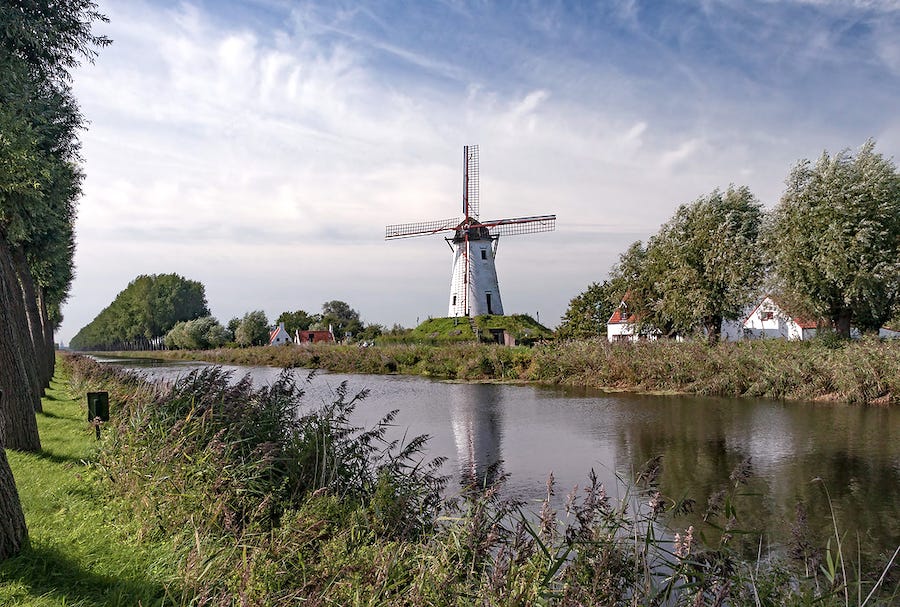FDJ's digital rise, ANJ warns against gambling "normalisation"
FDJ H1, ANJ focuses on player protection, Evolution, Betsson, Kindred results
Good morning and happy Friday, on Gaming and Co today:
Française des jeux: OSB drives up GGR in H1.
ANJ annual report puts emphasis on player safety.
Evolution not worried about competition levels.
Betsson and Kindred on the up.
FDJ enjoys digital rise as it acquires Irish lottery
Digital growth was up in H1 for French lottery operator as it acquired Irish counterpart and lined up sale of UK spread betting unit.
€2bn and counting: Française des jeux saw GGR rise 2.4% to €3.3bn and NGR increase 3% to €1.2bn following the group redirecting just over €2bn to the French state in H1, but EBITDA was down 3% at €300m.
Luck of the Irish: FDJ’s corporate highlight during the period was the acquisition of the Irish lottery operator Premier Lotteries Ireland for €350m.
PLI recorded €399m in GGR and €140m in profits in H223. FDJ said the group enjoyed similar EBITDA margins of around 24% and expects it to contribute 5% FY growth.
Digital rise: While lottery GGR was up 1.3% to €958m, FDJ said OSB and remote lottery sales were up 13% to just over €1.3bn, with margins reaching 29% and profits rising 10.5% to €257m, driven by the FIFA World Cup and a busy football calendar.
FDJ said that as part of measures taken to return its UK activities to profit, it had agreed to sell Sporting Group’s spread betting division and was waiting for approval from the relevant regulatory bodies.
ANJ warns against “normalisation” of gambling
French regulator outlines mains focus areas in annual report and warns against “normalisation” of gambling.
Three key areas: The Autorité Nationale des Jeux’s annual report into gambling in France focused on three areas: player protection and the fight against problem gambling, the Web3 regulatory project around 'monetizable' digital goods (JONUM) and the potential for iCasino regulation in France.
Publication delay: ANJ was also scheduled to publish its report into the illegal online casino market in France at the end of this month, but publication has been pushed back to September. No reasons were given for the delay.
Discussing iCasino regulation, ANJ said it was clear that the 2010 regulation of online betting, pari mutuel horse racing and poker had “significantly” reduced the illegal offerings that existed prior to regulation.
Here to stay: And advocates of iCasino legalisation were "wagering" that regulation of the vertical would produce a similar “prophylactic effect” and lead to players being protected, operators regulated and enable the state to collect tax revenues.
Downside: One argument against regulation centred on the fact that “online casino games have characteristics conducive to addictive practices” such as high returns to players, very fast games and “attractive visual and auditory stimuli”.
Liberté, égalité, spécificité: ANJ added that France’s 202 land-based casinos are also particularly important to the areas in which they are based, as reported by Gaming & Co on 21 July. That French “spécificité” also explains why the country has not, “unlike most of its European counterparts, authorized these games”.
Finding the right balance: ANJ noted that if the vertical were to be regulated, a balance will have to be found between a legal offer and minimising the risk of excessive gambling.
Danger of normalisation
Putting the emphasis on player protection, ANJ warned that while France’s gambling market generated record GGR in 2022 of almost €13bn (up 20% YoY), of which €2.25bn came from online operators, gambling had also become “a normalised activity that concerns all ages and categories”.
Industrial age: For some players, such "industrialisation" of gaming products can move them from "a logic of recreational gaming into a logic of financial investment", said ANJ.
Demands for voluntary gambling bans had reached 1,300 requests per month, "especially from young people and now totals more than 53,000 people", ANJ added.
With this in mind, ANJ said it wanted reinforced powers aimed at: banning gambling advertising during matches (five minutes before kick-off and after the final whistle), control operators' advertising volumes and enable ANJ to set a loss ceiling for the most vulnerable categories of players (18-25 year-olds).
Web3 key points: As part of France’s plans to regulate Web3 firms that operate “monetizable/exchangeable digital objects” (JONUM) such as NFTs virtual player cards, ANJ said the new regulations should establish a “flexible” legal framework to promote compliance and minimise the risks JONUMs may present to under-age players.
ANJ added that the implementation of the new regime shouldn’t lead to the circumvention of legal obligations that could lead to the unfair competition “to the detriment of legal gambling operators”.
Further reading: Target is 2025 for regulated iCasino in France
Read the ANJ report in full (in French).
Lottomatica’s online boost
Omni-everywhere: The Italian group said its omnichannel strategy and ongoing product and technology improvements enabled it to generate 21% growth revenues to €398m and an adj. EBITDA rise of 22% to €143m in Q2.
The group said all segments had grown, but online had been the standout during the period. It also upped FY23 guidance to €1.63bn-€1.69bn from €1.57bn–€1.67bn and adj. EBITDA to €570m-€590m from €550m–€570m.
Lottomatica’s digital outlets, including brands such as Goldbet and Betflag, recorded sequential growth driven by “solid market demand” and increased market share across “all segments and brands”.
Its retail network saw “high resilience” and good VLT performance against tough comps following the lifting of Covid restrictions in Q222. It also reduced leverage levels to 2.2x from 2.4x QoQ, “including one-off costs for IPO and refinancing”, it added.
Evolution ”not happy” with RNG as live keeps growing
The group continues to lead in live casino, but CEO Martin Carlesund once again said he was unhappy with the lack of progress in its RNG activities.
Random luck: Evolution's RNG division includes groups such as Red Tiger Gaming and Net Ent and was down 4% in Q2, while live casino rose 28% to €441m. Adj. EBITDA was up 31% at €312m and generated EBITDA margins of 71%.
Carlesund said the group was "not happy" with the RNG figures and said the division would launch more games. He added that after a "complete reorganisation" of the group the elements were in place to grow.
What doesn’t kill you… : North America was down 3% QoQ to €55.5m, but up 21% YoY. Carlesund intimated that seasonality might have played a role and that the group had "gained market share" during the period.
Asked about Bally Corp launching live casino in Rhode Island with StakeLogic, Las Vegas Sands looking to acquire a live casino provider and Finland monopoly Veikkaus being in discussions with Playtech, Carlesund said "competition is positive and makes you stronger, but the levels we are seeing are more or less the same" as in the past.
Showing respect: "We are a big player with a solid market share. Many operators rely on us, and we must treat them with the utmost respect, but it is also normal for them to have different providers," he added.
Geo breakdown: Evolution generated €175m of its revenues from Europe, closely followed by Asia at €164.5m, with Latin America generating €31m, where the group also opened two new studios in Colombia and Argentina. Approximately 40% of the group's revenue came from regulated markets.
Betsson’s Benelux redux
Betsson CEO Pontus Lindwall said the group had withdrawn its license application in the Netherlands but that its progress in Belgium, where it bought betFIRST and signed an online casino partnership with Groupe Partouche, contributed to it withdrawing its Dutch license application.
On the analyst call, Lindwall added that depending on the regulations, the partnership with Partouche could open iCasino possibilities in Switzerland and France.
Betsson enjoyed record revenues of €237m in Q2, with EBITDA up 78% to €68m.
The rise in revenues was driven by the group’s activities in the CEECA region, which contributed 43% of group revenues during the quarter.
Kindred’s lowlands challenge
Lowlands badlands: Kindred Group recorded a GGR increase of 29% to £307m and an EBITDA rise of 120% to £56m in Q2, with interim CEO Nils Anden noting that France and the Netherlands had been positive during the period, but that Belgium was “the biggest challenge” facing Unibet's parent company.
The country, along with neighbour Holland, introduced strict new advertising rules at the start of July and Kindred noted that without Belgium and Norway, GGR growth would have been 41%.
Hit the bottom: Kindred’s Belgian revenues were down 28% YoY, although Anden said they had “probably hit the bottom” and he expected them to start rising again.
And escape: Belgium’s new marketing rules have also had an impact on affiliates in the region, with some operators cancelling their partnerships with them. This has led some affiliates to explore deals with unregulated operators, who also provide more generous terms.
Build it: Kindred’s Betbuilder helped it increase margins and revenues in France and the Netherlands in Q2, with Unibet regaining its leadership position in the latter market, Anden said.
He added that in Q2 Unibet generated around 83% of the revenue it generated before the Dutch market was regulated in October 2021, while France “was in line” with Q222.
“This is positive given the dominance of sports betting in the market and lower seasonality in 2023 compared to 2022,” the group said.
Asked about online casino regulation in France, Anden said Kindred was following developments “very closely” and that “France is an important market for us and potential regulation of igaming would be super positive”.
Results in brief
XLMedia revenues were down 34% to $29m and EBITDA dropped 38% to $6.5m in H1 due to reduced activity in the US caused by fewer and less profitable state launches in 2023, the group said. Gaming revenues were down 12% to $7.4m ($8.4m) and the group banked $4m during the period from the sale of its Casino.se, Casino.gr and Casino.pt sites.
More positive news came from Europe, where revenues rose 27% to just over $5m, with its Freebets site performing strongly and generating 36% growth in real money players.
In a pre-announcement of its Q2 results affiliate group Raketech said it expects revenues to rise 54% YoY to €17.5m and EBITDA to increase 42% to €5.4m.
It also increased FY23 revenue guidance to €65m-€70m from €60m-€65, with EBITDA set to reach €23m-€26m vs. prior guidance of €20m-€24m.
NIBS
Online casino content provider Bragg Gaming has signed a new distribution agreement with 888. The company will launch its content with 888 brands William Hill in the UK, 888casino in Italy and Mr Green in Italy, Sweden and Denmark.
Beast of burden: President Lula da Silva signed off on ‘provisional measure No-1182’ that should set the course for Brazil to launch its long-awaited federal sports betting regulations, but the Brazilian Institute of Responsible Gaming (IBJR) has already criticised the proposed tax levels, saying it will place a “burden” on licensed companies and see “the growth of the parallel (illegal) market”.
Calendar
1 Aug: IGT, Caesars Entertainment
2 Aug: MGM, Rush Street Interactive
3 Aug: Bally’s Corp, DraftKings
4 Aug: DraftKings analyst call
Contact
Contact Jake Pollard to find out more about Gaming and Co: jake@gamingandco.info





